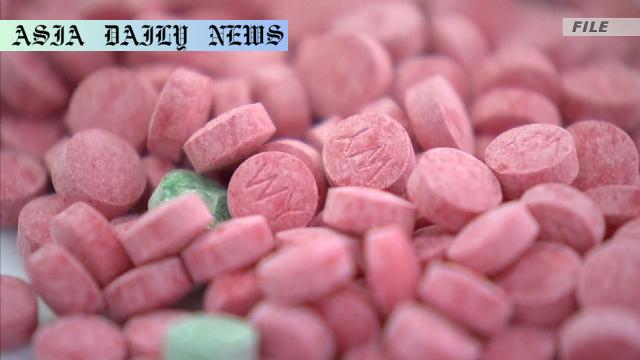Drugs are a threat that has long undermined our nation.
- Thailand intensifies its crackdown on drugs with a nation-wide campaign.
- The operation targets supply chains, user treatment, and international cooperation.
- The Golden Triangle remains a critical area for drug production.

Thailand Launches Nationwide Drug Crackdown
Thailand has embarked on a bold nationwide campaign to address its growing drug epidemic. Named “No Drugs No Dealers,” this initiative marks a significant effort by the government to combat illegal drug activities on multiple levels, sparking hope for a new era of public health and safety reforms. Spearheaded by Acting Prime Minister Phumtham Wechayachai, alongside governors from Bangkok and 76 provinces and the Royal Thai Police, the Thailand government is prioritizing the eradication of this longstanding issue.The urgency of the crackdown corresponds with rising health and societal concerns, particularly among young Thais, whose lives have reportedly been derailed by drug abuse. Methamphetamine, in particular, has become pervasive, with over 130 tons seized last year alone, according to the United Nations Office on Drugs and Crime. In response, Thailand is focusing its efforts on choking off drug supply chains, seizing the assets of manufacturers and dealers, supporting rehabilitation for users, and engaging in cross-border collaborations where illicit trade routes persist.
Targeting the Golden Triangle: A Historic Drug Hub
At the heart of this effort lies the infamous ‘Golden Triangle,’ a region notorious for being a hub of illegal drug activity. The Golden Triangle, which borders Thailand, Laos, and Myanmar, has long been identified as a center for the production of methamphetamine and other narcotics. By disrupting operations in this zone and increasing enforcement strategies, Thailand aims for a substantial reduction in the availability of these dangerous substances.Authorities have also highlighted the growing issue of online platforms being exploited for drug-related transactions. Known as ‘Yaba,’ a cheap meth pill is wreaking havoc in Thailand’s communities and is often transmitted through digital marketplaces. Thus, the crackdown also involves cyber-security measures to prevent the sale and purchase of narcotics online. In tandem, support services for rehabilitation and early interventions have been proposed to prevent addiction and rehabilitate those hurt by addiction.
Building a Collaborative Response Framework
Acting Prime Minister Phumtham Wechayachai strongly asserted that ‘drugs are a threat that has long undermined our nation.’ With this resolve, the Thai government emphasizes a collaborative response framework involving law enforcement, public health officials, and international allies to create a multi-dimensional strategy against narcotics. A holistic focus on both treatment and strong enforcement measures hints at a possible strategic model for other countries struggling with drug-related challenges worldwide.Thailand underscores its unwavering commitment to ending drug troubles by increasing partnerships with bordering nations and global organizations. For example, the UN Office on Drugs and Crime works closely with Thailand in monitoring production levels and uncovering new drug routes to curb the supply chain proactively. The goodwill generated by these efforts is as crucial as disrupting notorious local and international networks involved in trafficking.



Commentary
The Importance of Eradicating Drug Problems in Thailand
Thailand’s commitment to eradicating drug problems underlines a proactive and resolute approach to an issue that has presented significant health, social, and economic challenges. By launching a nationwide campaign coordinated by governmental leaders and concrete operational plans involving law enforcement and healthcare, Thailand demonstrates a clear understanding of the multifaceted nature of this issue. Effective drug policies often rely on striking this balance between strong policing and humane, rehabilitation-centered interventions, and Thailand’s measures appear to encapsulate this principle.Tackling the Source: The Golden Triangle and Beyond
The focus on the Golden Triangle is vital. As one of the world’s most infamous drug-producing zones, its activity has fueled a surge in global drug availability. Targeting assets of producers within this region not only reduces the source but also sends a strong message about the government’s resolve. This determination can inspire countries with similar struggles to analyze and address the systemic roots driving drug abuse in vulnerable areas.Concluding Notes on Addressing Modern Challenges
Thailand’s acknowledgment of online drug exchanges brings the country into the 21st century’s digital reality. Yaba and similar substances spread rapidly over the internet, making cyber enforcement just as relevant as addressing physical supply routes. Ultimately, the integration of advanced technology with on-the-ground staff exemplifies modernized governance in a national crisis.This crackdown is exceedingly relevant not just for Thailand but as a potential model for international drug eradication efforts. With its strong resolve, multi-agency collaboration, and clear strategy, Thailand can establish itself as a pioneer in tackling the global drug epidemic while empowering affected communities through care and rehabilitation. The rest of the world would do well to follow its lead.